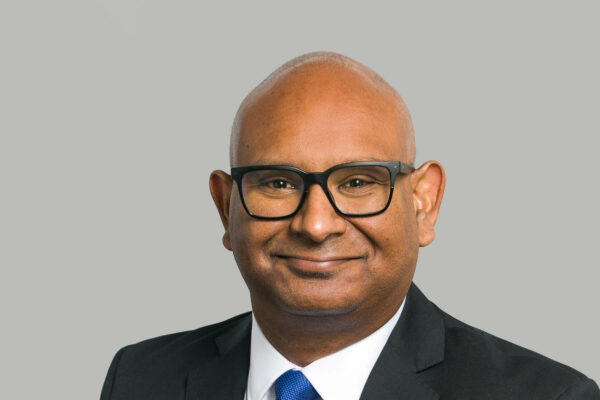A firm view on conflicts of interest

As one of the few barristers at the English bar with an international arbitration practice relating to Latin America, I am often asked how difficult it is to enforce foreign arbitral awards in Brazil. Until recently, my response has been that it is relatively straightforward. However, on 19 April 2017, the Superior Court of Justice (STJ) in Brasilia issued its controversial decision in Abengoa.
The background to this case is that, in September 2007, Mr Ometto sold two sugar processing plants in Brazil to Asa Bioenergy Holding AG, a subsidiary of the Spanish group, Abengoa.
Abengoa alleged that Mr Ometto misrepresented the crushing capacity of the plants and failed to disclose a swap transaction affecting liabilities if the Brazilian real property depreciated. Mr Ometto was found not only to have intentionally misled Abengoa, but to have entered into a prejudicial lease transaction before Abengoa took ownership.
The matters, heard before two arbitral panels composed of three arbitrators and both led by New York-based David Rivkin, awarded US $109 million in damages in favour of Abengoa.
Mr Ometto claimed that Mr Rivkin was not impartial because his firm had acted for Abengoa in a number of transactions, including:
A solar energy transaction with the US Department of Energy.
First Reserve Corp in connection with a purchase of an Abengoa affiliate.
Schneider Electric in its acquisition of an Abengoa subsidiary.
The matter was first brought and dismissed, by District Judge Rakoff, in Ometto v ASA Bioenergy Holding AG. It was later affirmed by the Second Circuit. The court found that there was no evidence contradicting Mr Rivkin’s assertion that he was not aware of the transactions. Mr Ometto’s claim, that Mr Rivkin had constructive knowledge, was dismissed.
When Abengoa sought to enforce the award in Brazil, Mr Ometto, raised the issue again. By eight votes to one, the STJ held that Mr Rivkin’s failure to disclose matters that compromised his impartiality and independence fell short of Brazilian public policy.
There has been some discussion regarding the STJ’s decision, but I hope this article invites the arbitration world to consider what I identify as the two important questions it raises:
- What standard of disclosure should be expected from an arbitrator who works for a large international firm?
- Can impartiality be determined objectively?
Standard of disclosure
Perhaps there is some irony that Mr Rivkin, former chairman of the International Bar Association (IBA), has been found by the STJ to have prima facie failed to abide by its guidelines. But did he breach such guidelines?
Paragraph 1.4 of the Non-Waivable Red List states:
“The arbitrator or his […] firm regularly advises the party, or an affiliate of the party, and the arbitrator or his […] firm derives significant financial income therefrom”.
The issues, at least in part, have been aired by the courts in W Ltd v M SDN BHD. In that case, David Haigh QC also failed to disclose a potential conflict, in accordance with paragraph 1.4, on the basis that a conflicts check did not bring up affiliate companies. Similarly, Mr Rivkin, in his accepted oral evidence before Judge Rakoff, was found not to have had knowledge of the conflicts, despite the court finding that his ignorance was caused by his own “administrative carelessness”.
Both these cases illustrate the English and US approaches to dealing with this issue: a mere failure to identify a potential conflict does not amount to a presumption of bias. Unless the parties have expressly agreed to incorporate paragraph 1.4 into the procedural rules of the arbitration, it is merely advisory and any breach requires further probing.
The caveat is that if arbitrators (especially those practising in large international firms) are to avoid challenges, delay and burdening parties with extra costs, they must take seriously not only their duty to disclose relevant information that may lead a party to challenge their impartiality on their proposed appointment, but also their ongoing duty. In many of these cases, the arbitrators were criticised because they failed to disclose.
Whether arbitrators are following the IBA guidelines or the International Chamber of Commerce (ICC) 2016 Guidance Note on conflict disclosures, disclosure is ultimately a matter of discretion. When weighing such considerations against practical implications, arbitrators must be alert to the potential conflicts which any specific appointment may raise.
I accept that there will rarely be actual bias in these types of cases. However, in my view, the famous words of Lord Hewart CJ in R v Sussex Justices, Ex parte McCarthy apply:
“The answer to that question depends not upon what actually was done but upon what might appear to be done”.
Objective impartiality
Impartiality is a very different concept to independence. Impartiality relates to bias, while independence relates to connection. If the purpose of international arbitration is to institute some semblance of lex mercatoria then surely a pragmatic view must be taken. Independence is not a practical standard for determining disinterest.
As Lord Hewart put it, the problem is not that of actual bias, but perceived bias. Article 12(2) of the UNCITRAL Model Law uses the term justifiable doubts, as does section 24(1)(a) of the English Arbitration Act 1996. A lack of independence can lead to an impression of bias.
The difficulty is the varying standards on the perception of bias. Those varying standards can lead to different conclusions on the validity of an award. In other words, there is no single objective standard of impartiality.
In W Ltd v M SDN BHD, it was highlighted that apparent bias under English law did not give rise to a presumption of bias. Paragraph 1.4 of the IBA Rules was criticised by Knowles J for creating such a presumption. A party raising the claim of bias carried the burden of proof.
In the US, the courts are divided on the standard of proof for evident partiality. For example, the Ninth Circuit has a lower standard than the Second Circuit. Commentators have considered whether it would have produced the same outcome, had Mr Ometto’s claim come before it.
When we turn to the rest of the world, we see cases like ConocoPhillips Petrozuata BV and others v Bolivarian Republic of Venezuela and J & P AVAX v Tecnimont SpAdemonstrating the spectrum of varying standards. In contrast, Colombia applied a novel approach, making a distinction between its own domestic and international public policy in Tampico Beverages Inc v Productos Naturales de la Sabana SA Alqueria.
In a country like Brazil, impartiality is adjudicated upon through the prism of the familiar. Large international law firms of 1,000 plus partners, as in London or New York, cannot be found. An arbitrator from a Brazilian firm that received some US $6 million in fees from a party (or its affiliates) to an arbitration would be likely to raise questions about partiality. Historically, there has been a propensity for corruption.
So it is perhaps not surprising that the STJ’s conclusion was different to that of the Second Circuit of New York. The lesson is that even more care should be taken in the arbitration process, with a view to considering where an award may be enforced and what the culture and context of the place of enforcement may be.
Conclusion
So what can we really conclude from all the case law and discussion?
First, the issue of arbitrators’ conflicts is complicated and far from resolved. Matters such as the extent of disclosure, the efficacy of conflicts checks and the standard upon which impartiality is assessed, is currently divergent in the world of international arbitration.
Secondly, guidelines are just that. Flexibility is one of the key remaining attractions of international arbitration. Care must be taken in drawing from advisory guidelines so as not to place too much emphasis on them, unless they have been specifically adopted as binding in those particular proceedings.
Thirdly, in light of the differences and nuances from one jurisdiction to another, it is inevitable that the exact same issue put to different adjudicating bodies under different standards will yield different outcomes.
Finality is arguably the most attractive feature of international arbitration. Multiple challenges and annulments, or refusal to enforce, undermines the entire system. It follows that large international firms must employ more effective means of conflict searches if they do not wish to lose appointments or drive arbitrators out of their firms. Lawyers must also be aware of the impartiality standards, both in the seat of arbitration and any likely enforcement jurisdictions, which add yet another layer of complexity.
This article was first published on Practical Law’s Arbitration Blog.
Disclaimer
This content is provided free of charge for information purposes only. It does not constitute legal advice and should not be relied on as such. No responsibility for the accuracy and/or correctness of the information and commentary set out in the article, or for any consequences of relying on it, is assumed or accepted by any member of Chambers or by Chambers as a whole.
Contact
Please note that we do not give legal advice on individual cases which may relate to this content other than by way of formal instruction of a member of Gatehouse Chambers. However, if you have any other queries about this content please contact:


